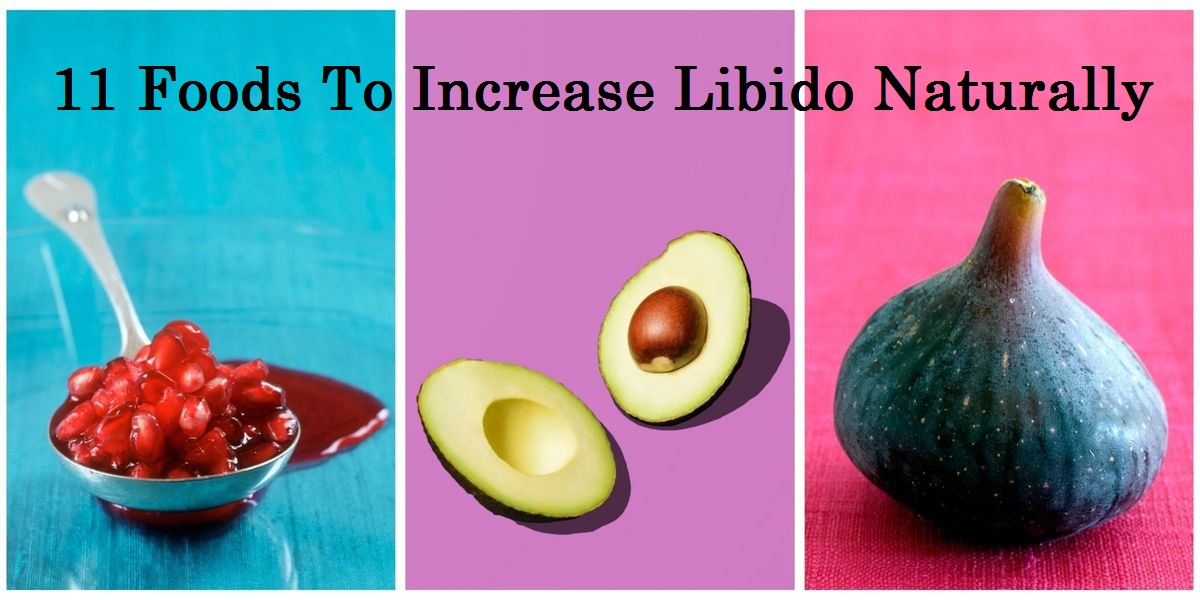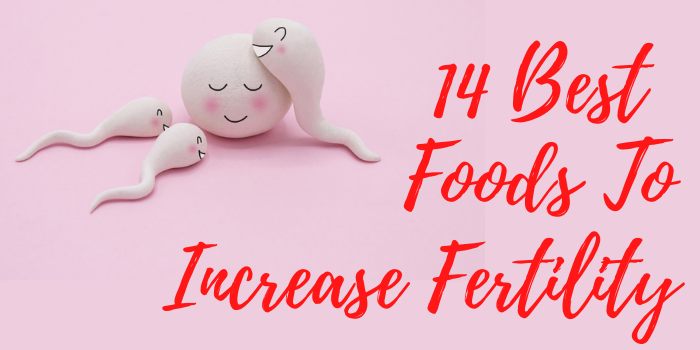In practically every stage of a person’s life, from conception through adolescence and old age, two hormones play an important role. Estrogen and testosterone are the hormones in question, and we’ll examine what they do in this estrogen vs testosterone comparison.
Table of Contents
Estrogen vs Testosterone – What They Are?
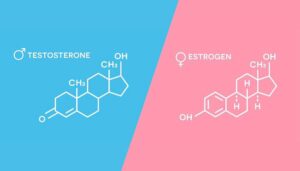
Among the many hormones that the body uses, estrogen and testosterone belong to a class called progesterone and estradiol.
It is the male sex hormone, but it is also generated in minor amounts by the female body. Males produce 7 to 8 times the amount of testosterone as females, according to research. In men, testosterone is produced by the testicles and adrenal glands, while in women it is produced by the ovaries.
Estrogen is widely known for its role in female sex. Estriol, estradiol, and estrone are the three major kinds of endogenous estrogen that are produced by the body. It is the ovaries and fat tissue that are responsible for the production of these hormones.
Additionally, the male body has a complicated connection with estrogen, particularly estradiol. A possible link between estrogen and sperm generation and maintenance has been found in males with estrogen receptors, but no conclusive evidence has been found to support this theory.
Effects of Estrogen on the Body
Postmenopausal women have higher levels of the hormone estrogen, which is the weakest and least known of the estrogens. It is assumed to act as a “backup” hormone that can be converted to stronger forms of estrogen.
A woman’s placenta produces significant levels of estriol during pregnancy, but the hormone is otherwise undetectable in the body. The hormone has been studied to see if it can ease premenopausal symptoms.
In addition to inducing puberty and promoting secondary sex characteristics, estradiol regulates the reproductive cycle and helps maintain bone health in the body.
Effects of Testosterone on the Body
For males, testosterone is responsible for a wide range of biological functions: namely, growth and development.
This hormone shapes primary and secondary sex traits. It regulates the development of the penis and testes in the womb.There is a rise in facial and body hair, as well as changes in voice and height, that occur during puberty, as well as an increase in the production of sebum, which is why acne is so common in teenage boys.
Disorders of the Estrogen System
Polycystic Ovarian Syndrome (PCOS) and other illnesses that affect or impair the ovaries’ natural function are frequently to blame for estrogen deficiency (PCOS). Many women find menopause distressing because of the abrupt fall in estrogen levels.
Irregular menstruation and infertility
Women’s menstrual cycles are regulated by the hormone estrogen. Periods can be radically irregular when the hormone is out of balance, with some women going months without having a period.
A woman’s ability to conceive relies heavily on estradiol in particular. High quantities of the hormone are used by the body to stimulate the ovaries to release an egg. You must have ovulation in order to get pregnant. If you don’t have ovulation, then you won’t get pregnant.
Changes in body weight
The distribution of fat and the metabolism of women are greatly influenced by the hormones of the sexes. Studies show that an estrogen level imbalance might lead to weight gain and obesity. More fat is stored in the abdomen area of postmenopausal women, where the body is less likely to use it properly. The presence of fat in this area has been linked to an increased risk of cardiovascular disease, diabetes, and hypertension.
Cardiovascular insufficiency.
Many heart-related functions have been linked to estrogen in studies. Decreases in dangerous LDL cholesterol have been noted, as has increased blood flow through dilation of blood vessels. Women who are postmenopausal are at greater risk for cardiovascular disease, although other age-related variables may also play a role.
Disorders Associated with Low Testosterone
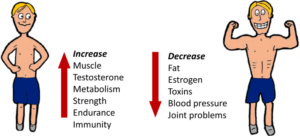
Many physical systems are touched by testosterone, from sexual to mental. Hypogonadism, a condition marked by abnormally low levels of testosterone, can have a cascading effect on the body.
Cognition that is in poor shape
Memory and recall might be hampered by low testosterone levels. Working memory is improved in men with higher testosterone levels. According to the research, women who were given estrogen supplements did not experience the same improvement.
Mood disturbances.
A number of studies have attempted to establish a relationship between depression and low testosterone levels. The intricacies are still murky, but men with lower than average testosterone levels have been found to have higher rates of depression or depressive symptoms.
Damage to the skeleton
Age-related declines in testosterone levels are not uncommon, but they are usually gradual. This is why men with normal testosterone levels don’t normally have bone degeneration as they get older. Nevertheless, hypogonadal individuals appear to be at an elevated risk of degenerative bone illnesses such as steopenia and osteoporosis, even from the age of 50 onwards.
Bone development appears to lie at the heart of the testosterone-bone health connection. Breaking down and rebuilding bones is a complex process that requires particular teams of cells. Hormones have an effect on these cells. Bone density can be reduced as a result of decreased testosterone levels, which can cause our bodies to break down bone more quickly than it can be rebuilt.
Increasing Testosterone Concentrations
Boosting testosterone has become a full-fledged business in and of itself. There are literally millions of hits for “testosterone booster” if you do a simple Google search.
Good eating, supplements, and testosterone replacement therapy are the only two proven methods for increasing testosterone levels. Foods and minerals including ginger, zinc, and pomegranates are directly associated with greater or lower T-levels.
Supplement To Boost Testosterone
By now you might have understood the difference between estrogen vs testosterone and the consequences of low testosterone, it is obvious to look for a supplement to boost testosterone level in those who are suffering with low testosterone level. There are lots of T-boosters available on the market, and it’s hard to find out the best one for you. But there is one such supplement on the market that is immensely popular on the market, and that is Testogen. Read out our honest review on Testogen to get detailed information about this amazing testosterone booster. Or if you are ready to buy it, visit official website.
![]()

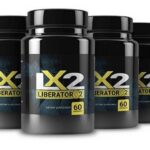
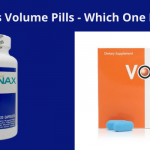

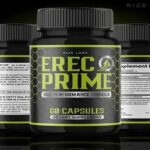

![Cilexin Reviews [2024] – Does It Really Enhance Male Potency? Cilexin](https://4male-enhancement.com/wp-content/uploads/2022/06/Cilexin-150x150.jpeg)


